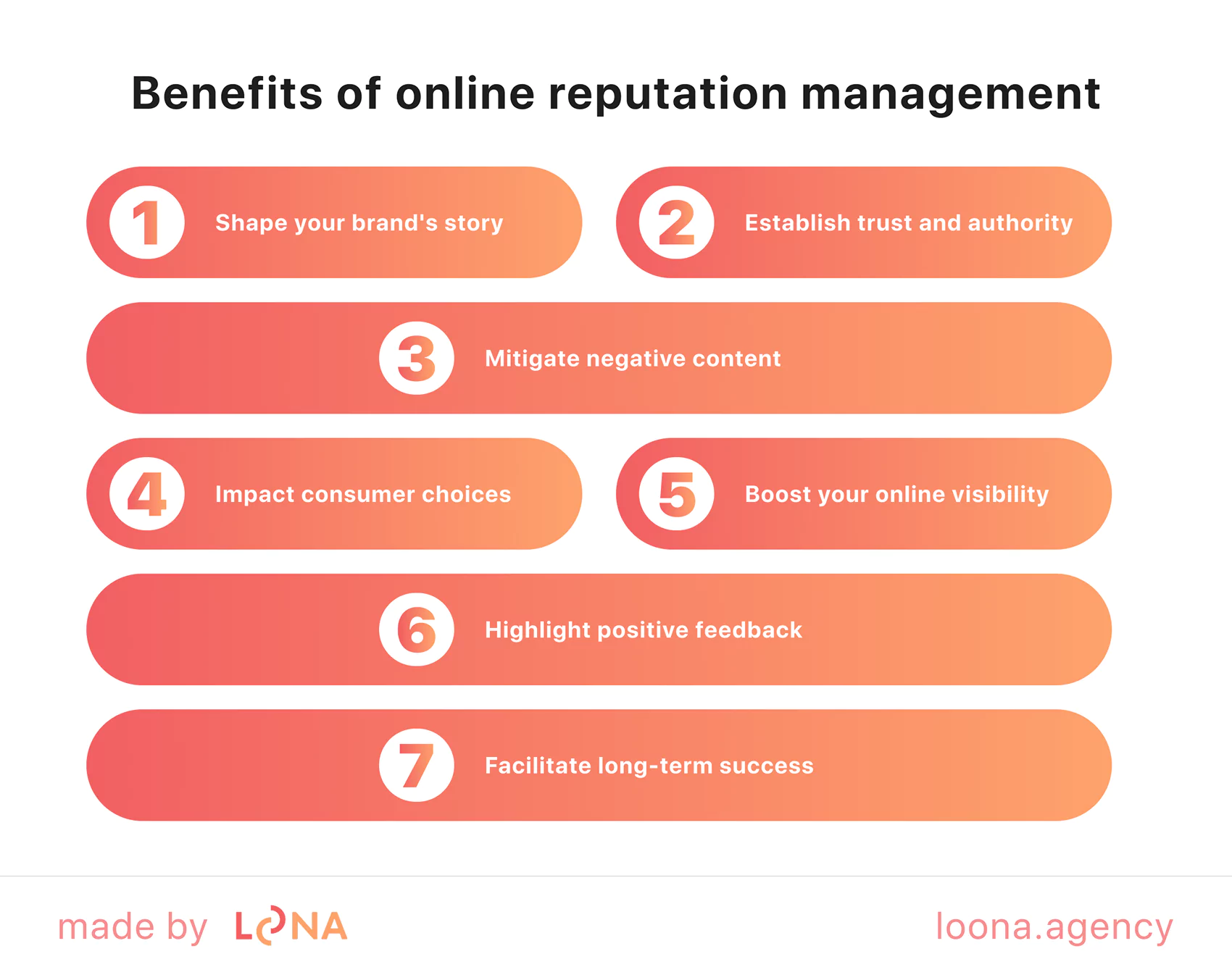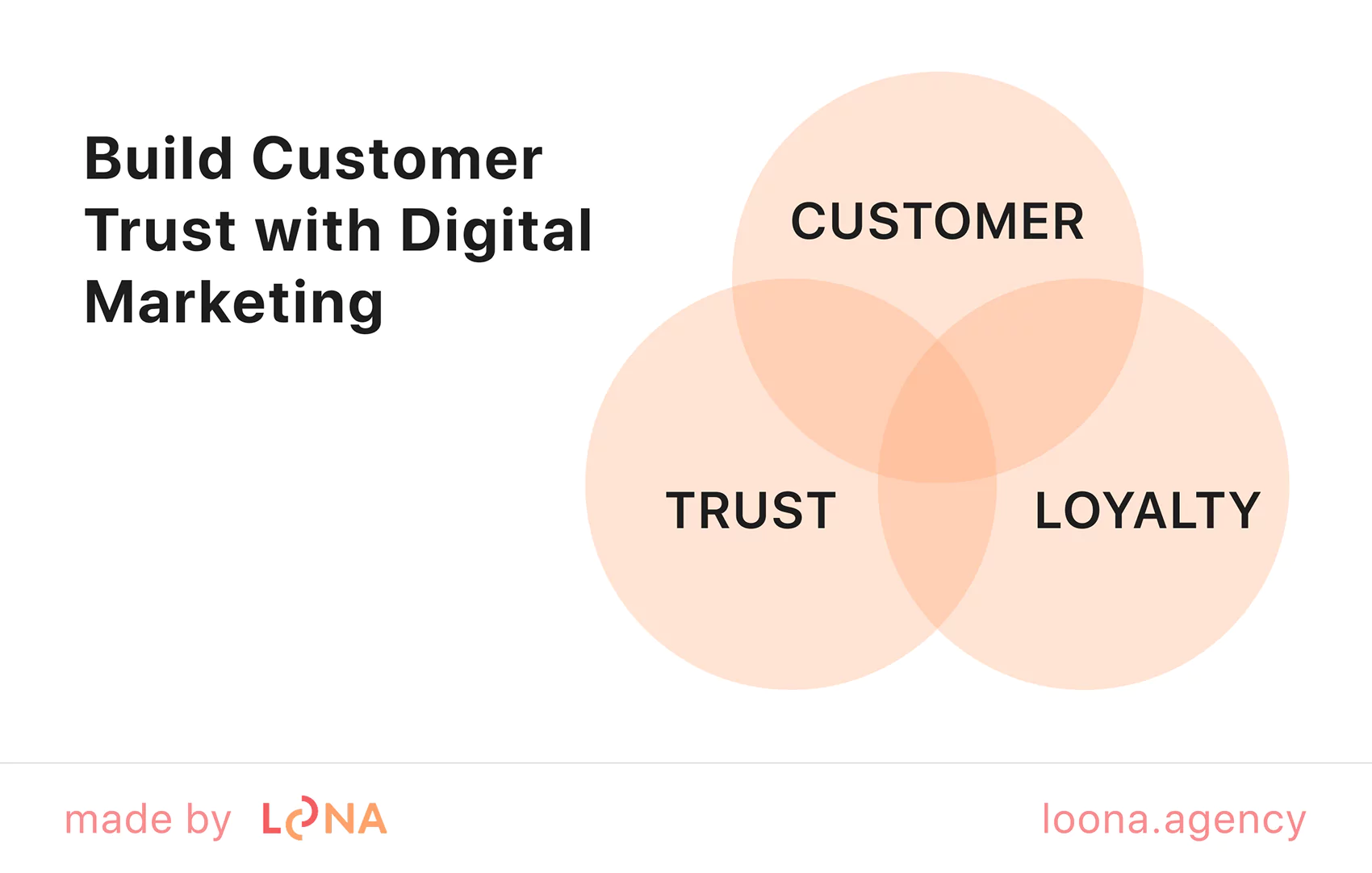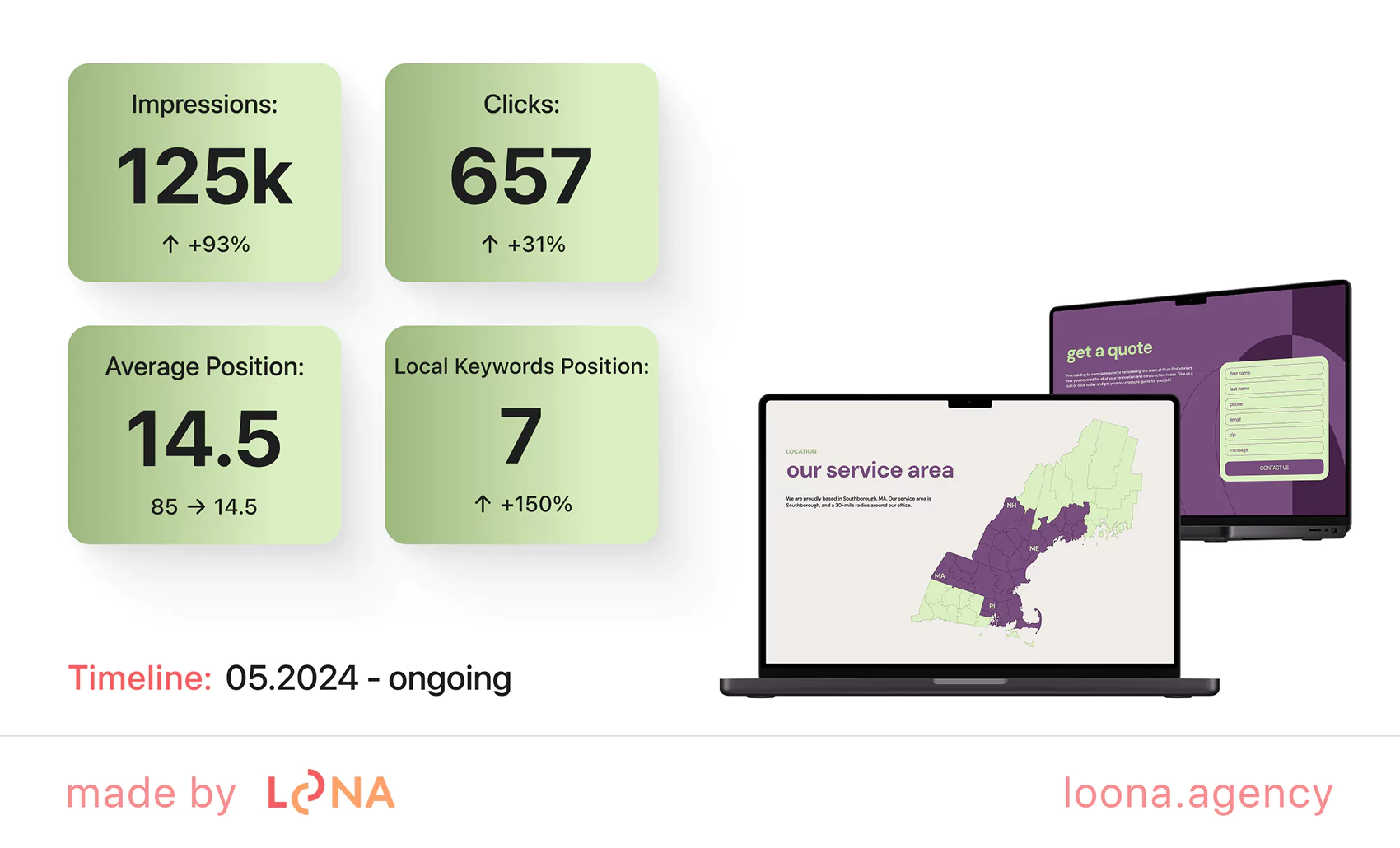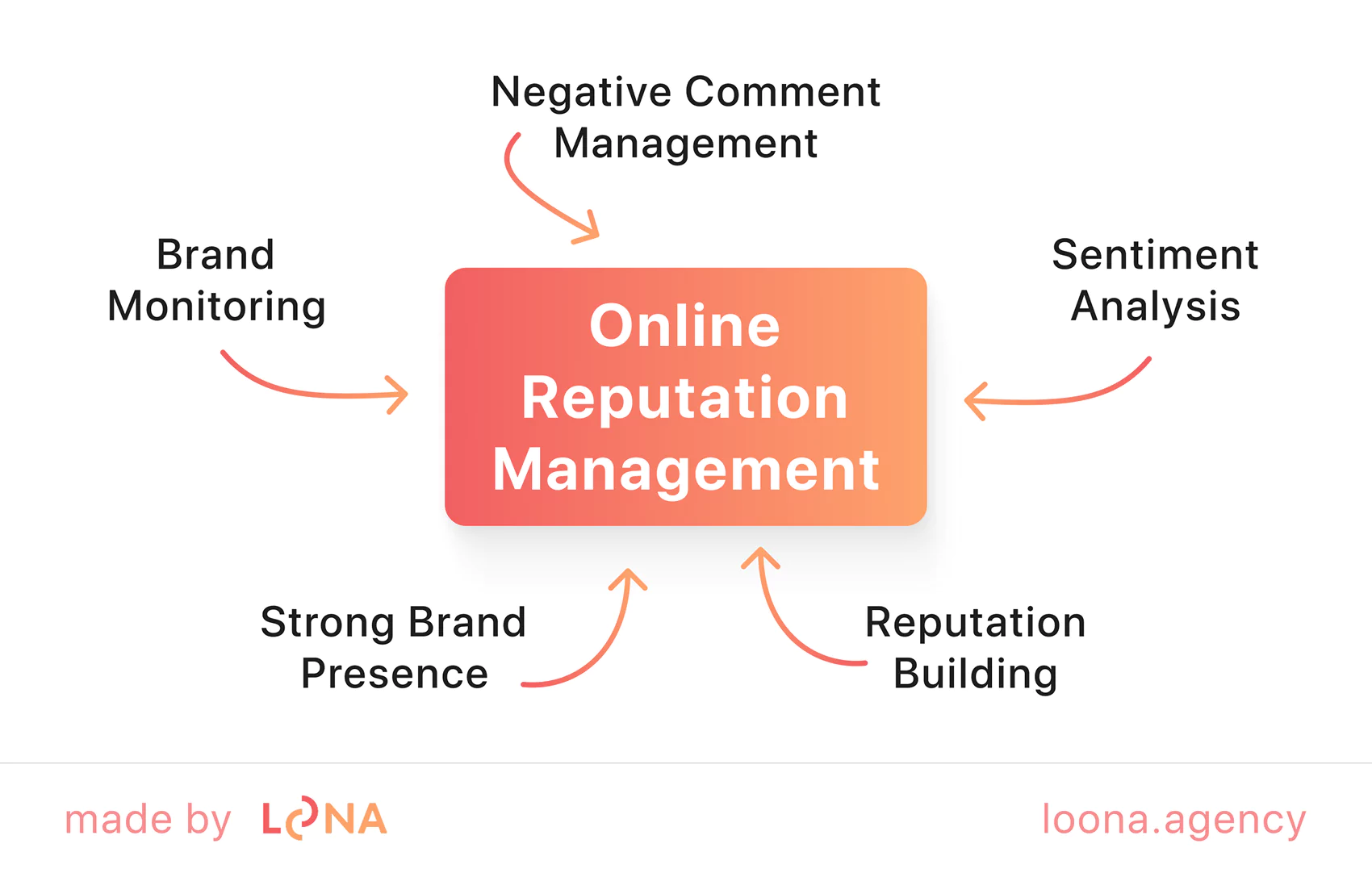Customers never make purchases from companies they have doubts about. This is why SEO reputation management (search engine optimization) incorporates search visibility as well as evidence of dependability: it boosts informational reviews, ranks legitimate pages higher in the SERP (search engine results page), and filters irrelevant junk.
When done well, it increases the click-throughs, decreases friction in the consideration, and converts branded search into revenue. In the case of teams already possessing funnels, it can be the quickest means of synchronizing trust indicators and intent-to-buy. Online reputation management SEO fills the gaps of trust.
What is SEO reputation management?
At its core, SEO reputation management involves managing the online presence that appears when people search for a brand or product. It focuses on positioning credible pages, such as official sites, trusted lists, and media coverage, while reducing the presence of irrelevant or damaging pages.
This is a combination of technical SEO, content publishing, and review management that takes into consideration credibility and consistency. In reality, it frequently overlaps with industry-specific campaigns.

The example is local SEO for contractors, which involves maintaining accurate business listings, encouraging honest reviews, and showcasing completed projects before references to past projects. This is how online reputation management SEO can transform trust into quantifiable business growth.
How online reputation affects sales growth
Online reputation will go a long way in determining the pace of sales. When positive reviews, case studies, and media coverage occupy top positions in search results, trust levels are established immediately, and the decision-making process is shortened.
Strong authority cues will generate more clicks, higher volumes of leads, and bigger order sizes. Without search engine reputation management, even one negative article can harm perception. Effective reputation management SEO keeps visibility aligned with revenue goals.
Customers believe that the lowest possible score that a business can have is a 3.3-star rating. A drop below this can destroy consumer confidence in a major way.
The link between customer trust and buying decisions
Trust is the basis of any purchase, leading to the translation into action:
- Social evidence in the search results page – such as star ratings or reviews makes the buyer feel confident.
- Message consistency refers to the repetition of a reliable narrative across websites, directories, and media.
- Shown authority – rankings posted there can also help to show strength.
Through well-structured SEO for reputation management, these signals appear in the right place at the right time, making buying decisions smoother and faster.
How negative search content lowers conversions
The presence of unwanted content in search engines erodes trust and slows down the conversion process. Once a potential buyer is exposed to negative cues at the earliest stage of their path, this can reconstitute their perspective on all the other information.
Reliability questions and even stronger criticism of competitors take their power as they start worrying about the product’s strength. Directly, one can find that this preliminary doubt lowers the chances of further advancement toward a purchase.
| Negative search content | Impact on conversions |
| Low-ranking reviews | Customers hesitate or leave for competitors |
| Outdated negative articles | Confusion grows, leading to uncertainty about service quality |
| Unverified rumours or social comments | Doubt spreads, stalling purchase momentum |
This is why reputation management SEO must strengthen positive signals. In many cases, strategies like search engine reputation management help ensure that trusted resources dominate the results, limiting the impact of negative content on conversions.
SEO strategies for reputation management
Reputation strategy in search must align visibility with proof. Start by mapping branded and category queries, identify which assets should lead – service pages, case studies, trusted profiles – and build a publishing and internal‑link plan around them. For contractor‑type businesses, general contractor marketing ties review governance, local listings, and content structure so those assets surface ahead of noise.

Combine schema for testimonials, media mentions, and FAQs (frequently asked questions) with targeted outreach to authority sites in practice. Monitor SERP movements weekly, update pages when sentiment shifts, and maintain a measured response protocol – the system that keeps trust visible when demand spikes.
Optimize positive content for search visibility
Start with a SERP audit to identify which positive assets deserve priority – service pages, bios, project galleries, and trusted profiles. Strengthen those pages with topical coverage, precise intent mapping, and descriptive internal anchors.
For brands facing a dated article, replace it in results by publishing a detailed timeline, safety certifications, and third‑party quotes; interlink from high‑authority sections to consolidate relevance. Calibrate title tags to align with queries customers actually type, then secure supportive mentions on reputable directories.
Techniques fromSEO and reputation managementalign this publishing plan with goals: keep reliable sources above the fold, push noisy pages down, and refresh content on a cadence informed by search demand. Measured improvements show up as higher CTR (click-through rate) on branded queries and fewer abandonment signals during evaluation.
Effective SEO reputation management benefits when content gains authority through quality referral channels, and insights on the impact of inbound links show how to amplify that effect through strategic linkage.
Manage customer reviews and testimonials
Reviews shape the first impression in search, especially when snippets pull ratings into the results. A regional contractor that moved from sporadic replies to a 24‑hour response habit saw fewer hesitations during sales calls because prospects found courteous answers attached to feedback.
To systemize that outcome, align processes with online reputation signals and your content calendar. Under online reputation management SEO, aim for volume and authenticity rather than bursts after promotions.
Actions:
- Request feedback 3-7 days after delivery, when the experience is fresh.
- Reply to every review with context and resolution, avoiding templated phrasing.
- Mark up testimonial pages with Review/Organization schema and interlink from service pages.
Close the loop by featuring quotes on relevant pages and in local listings; Google re‑crawls and picks them up quickly. Pair this with SEO for reputation management to ensure positive sentiment is present on pages that already rank, thereby maintaining trust signals where buyers look.
Push down harmful results in search engines
When old complaints or irrelevant criticism appear in top results, reputation management SEO strategies help reposition content – your case studies, service pages, or industry mentions – ahead of them. One approach involves creating fresh, high-authority pages on key topics and linking to support from your main pillar pages, gradually shifting search visibility.
For example, applying the best track organic traffic techniques. Regularly monitor SERP shifts, prune outdated pages, and build signals that reinforce credibility in areas where prospects search.
Use social media and PR to support SEO reputation
Integrating SEO reputation management tips with social media amplifies visibility faster than publishing alone. When you share project results, safety highlights, or expert quotes via social channels or press, you introduce new discovery paths — and often, natural mentions and backlinks follow.
For instance, aligning your content’s cadence, its rhythm, pacing, and distribution with content marketing metrics ensures you respond precisely to what audiences value. By weaving brand voice across domains, you reinforce search signals and send unified credibility across search, social, and earned mentions.
How SEO reputation management improves sales
Sales improve when search results make trust easy. A clear SEO reputation management process aligns product pages, testimonials, and third‑party profiles so they appear before noise – fewer doubts, more intent.
For small firms, SEO companies for small businesses show how structured outreach and content cadence push high‑quality assets upward. Combine technical fixes with PR and listings, then measure shifts in branded clicks and call enquiries. Track outcomes weekly to adjust topics and links.
Treat SEO and reputation management as one plan: publish credible proof, interlink it, add review schema, and refresh the pieces that attract high‑value queries.
Better visibility builds online trust
Trust grows when search results present clear proof at a glance – reviews, credentials, case notes, and consistent profiles. A regional lender moved from sporadic leads to steady appointments after its accreditation page, FAQs, and testimonial hub outranked a dated forum complaint.
That shift came from structured interlinking, review schema, and citations on specialist directories. To keep momentum, use SEO online reputation management to schedule content updates against query patterns and sentiment. If finance is your sector, align doctrine‑level articles and product pages with SEO for financial services so high‑intent searches meet transparent evidence.

Avoid copy that feels salesy; prioritise timelines, audit trails, and named experts. Measurement matters – track branded click‑throughs, time on proof pages, and call bookings side by side.
When these indicators rise together, visibility is doing real work for trust. If gaps appear, publish clarifications that answer the exact concern, then surface them via internal links from category leaders and navigation.
Higher CTR and improved conversion rates
Structured data, especially review schema, continually shows strong performance. An analysis in Search Engine Journal found that search results featuring reviews achieve approximately 35% higher CTR compared to plain links.
Another study reported a 40% CTR boost for pages with schema markup, while retailers saw a 30% increase when product schema was added.
| Type of Schema Implementation | Typical CTR Uplift |
| Review the schema in the organic results | +35 % |
| General schema markup (e.g., FAQ/product) | +40 % |
| Product schema (e-commerce) | +30 % |
Improvements like these reflect how search engine reputation management shapes user behaviour. A consistent system – schema for reviews, interlinking from authority hubs, and adjustments guided by analytics – keeps trustworthy assets ahead.
Services such as on-page SEO are practical examples of aligning technical SEO with brand reputation goals. Applying reputation management SEO strategies ensures that growth in CTR translates directly into better conversions.
Long-term loyalty through SEO reputation work
First clicks can be won through visibility, but loyalty is built when users return and recommend. Long-term trust requires consistency across pages, updates, and communication. Brands that maintain alignment with modern standards, such as web design and SEO, keep their content fresh and reliable.
Practical steps within SEO online reputation management include:
- regular audits to update testimonials and FAQs;
- structured review replies to show accountability;
- coordinated visibility through Google Ads management, balancing organic and paid signals;
- publishing evidence-led content that reinforces authority.
This approach aligns with search engine reputation management tips, demonstrating how ongoing efforts sustain positive sentiment. With SEO for reputation management, trust becomes part of the brand identity.
Companies in finance, for example, use principles outlined in SEO for financial services to build authority across regulated queries. Over time, this repetition of credible proof converts into loyalty – referrals rise, churn declines, and buyers stay committed.
Case studies of management success
Loona’s case studies showcase how targeted strategies translate into tangible results. Each story presents a clear before-and-after, demonstrating the value of structured SEO reputation management in competitive industries. Below is a detailed example that outlines the challenge, solution, and impact – helping you see what great execution really looks like.
Plum ProExteriors – Local SEO transformation
A roofing and siding specialist, Plum ProExteriors, needed greater visibility in local searches to attract homeowners – their site wasn’t ranking for key service terms and lacked trust signals.
Loona deployed a local SEO campaign that included keyword-targeted landing pages, Google My Business optimization, reputation management via review integration, and local backlink building.

The results:
- Organic search traffic surged tenfold.
- Domain rating doubled.
- Impressions climbed to over 125,000 from local keywords, and rankings hit page one for #7 queries.
This case underscores how combining search visibility, user trust, and technical clarity drives measurable business growth – and is a strong example of what SEO and reputation management can achieve when aligned.
Sandbaggy – E-commerce SEO turnaround
An e-commerce provider for construction and landscaping supplies, Sandbaggy, faced limited visibility online — their product pages lacked optimization, compelling descriptions, and strong visuals.
Loona stepped in with a focused SEO strategy and reputation management in SEO: full optimisation of product pages with high-traffic keywords, refined copywriting, product positioning, and upgraded visuals.
Outcomes:
- Organic traffic doubled.
- Improved keyword rankings.
- Enhanced product descriptions and visual appeal.
The success speaks to the power of search engine reputation management in competitive categories – when product pages are informative, well-structured, and visually polished, both search engines and customers respond.
Tinkogroup – Scaling lead generation through search
Tinkogroup, a data services provider, was heavily dependent on freelance channels like Upwork – their website wasn’t attracting any organic traffic. Loona introduced a full-scale digital presence overhaul, incorporating keyword-optimised content, strategic link-building, LinkedIn engagement, directory listings, and content marketing to secure a solid foundation.
The result:
- Organic traffic surged by 246%.
- Daily impressions rose 223%.
- Clicks per day increased 100% — all in under a year.
This work exemplifies reputation management SEO strategies – leveraging trust-building content and authority signals to convert visitors into clients. See the transformation detailed in the Tinkogroup case study. Loona’s data-led execution across content, SEO, and social demonstrates how visibility and credibility combine to scale qualified leads rapidly.
Steps to start SEO reputation
These early steps of SEO reputation building do not need to be frightening. The four steps involved are the deliberate, 4 step program of bringing in clarity through the audit, content alignment, methods of improving visibility, and maintaining it through measurement.
1. Audit existing presence. Begin by reviewing your current SERP appearance. Identify pages, reviews, and mentions that represent your brand well and those that don’t. This snapshot sets priorities without guesswork. Implement review and FAQ schema where possible to clarify relevance and enhance credibility.
2. Align content with intent. Make sure your landing pages, testimonials, and credentials reflect what people seek. Use reputation management SEO strategies to craft trust-driven messaging across service pages, blog posts, and directories. This clarity guides both users and search engines.
3. Boost visibility. Amplify top-performing content through internal links, local listings, PR placements, and outreach. Taking cues from SEO reputation management workflow ensures review-driven content and local pages rise above weaker mentions in search.
4. Measure and refine. Monitor CTR, branded ranking, and referral traffic. Use those signals to adjust titles, snippets, and interlinking. Search engine reputation management tips remind us to maintain rhythm – regular updates to testimonials, FAQs, and metadata keep your reputation front and centre.
The risks of ignoring SEO reputation management
Ignoring SEO reputation management may seem harmless at first – but the risks compound quickly. Search engines are often the first touchpoint between a business and its potential customers.
If the first page of results is dominated by negative reviews, outdated content, or misleading articles, prospects form opinions before visiting your website. Once trust is damaged, recovery is slow and far more costly than proactive action.
One clear risk is loss of sales opportunities. Studies show that most users will not engage with a business if it has consistently poor ratings visible in search. Even a single unresolved complaint can outrank positive assets and lead to hesitation.

Competitors, meanwhile, benefit from the doubt cast on your brand – their profiles look more reliable simply by comparison. Without reputation management SEO strategies, you are effectively handing potential leads to rivals.
Another danger is long-term brand erosion. Outdated information or unanswered criticism lingers online and continues to influence perception.
Over time, this erodes loyalty among existing customers and makes attracting new ones harder. Reputation repair campaigns often take months of concentrated effort, and results are never as strong as if prevention had been in place from the start.
There are also risks tied to recruitment and partnerships. Prospective employees, investors, and collaborators search before making decisions. Negative results can reduce your ability to attract top talent or secure funding. In regulated industries, credibility is more than marketing – it is a compliance matter.
By integrating SEO online reputation management, brands take control of their narrative. Regular monitoring, structured review collection, and updates ensure that positive assets dominate search visibility. Choosing to ignore it means leaving reputation to chance – and in today’s digital marketplace, chance rarely favours growth.
Final thoughts
Reputation in search is never static – it shifts with every review, article, or algorithm update. By treating SEO and reputation management as a single discipline, businesses maintain visibility, credibility, and trust.
Contact us to discover that the cost of prevention is significantly lower than the cost of recovery, and the benefits compound, resulting in stronger CTR, higher conversions, and long-term loyalty. In short, investing in reputation online is investing in sustainable growth.
FAQ
01 What is reputation management in SEO?
It is the process of shaping how a brand appears in search results. By optimising positive content and reducing the visibility of negative mentions, companies guide perception and build trust.
02 How does SEO reputation management improve sales?
By ensuring that trusted pages, reviews, and case studies dominate search results, prospects feel reassured – leading to higher click-through rates and better conversion outcomes.
03 What are SEO reputation management tips for small businesses?
Focus on review collection, accurate local listings, and structured data. These steps are cost-effective and quickly improve credibility in local searches.
04 What tools support SEO online reputation management?
Tools like Google Alerts, SEMrush, or Brand24 monitor mentions and rankings. They provide data for adjusting content and responding quickly to shifts in visibility.
05 Why is long-term work important in reputation management SEO strategies?
Reputation can’t be fixed overnight. Continuous updates to testimonials, service pages, and technical SEO maintain consistent trust signals that accumulate into lasting loyalty.
Love what you’re reading? Sign up for our newsletter to get our newest articles, helpful tips, and fresh marketing updates delivered right to you. No spam, just the good stuff.












